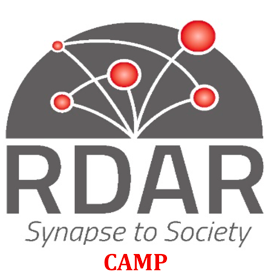Connectomes-related to Active Methamphetamine-dependence Project (CAMP)

Learn more about CAMP in collaboration with RDAR
Study Overview:
Methamphetamine is a leading cause of drug-related overdose deaths in the U.S. and its addictive properties make long-term recovery intractable for many who use this drug. There is a vital need for objective means of identifying future substance use patterns and consequences for individuals who are dependent upon methamphetamine in order to signal the need for early interventions or justify preventative treatments. CAMP aims to provide objective methods that can be used to aid in identifying future substance use patterns and consequences for persons who are dependent upon methamphetamine.
Specific Aims:
(Aim 1): Collect key neural, neuropsychological, psychiatric, and social measures from persons who are dependent upon methamphetamine at intake and during a 6-month longitudinal period
(Aim 2): Develop biopsychosocial, machine-learning models to predict 6-month changes in substance use patterns and, social, psychological, and occupational functioning.
Long-Term Goals:
Develop predictive models quantifying the probability of improving or worsening substance use patterns and use-related consequences. In this way, CAMP will provide the foundation for objective biopsychosocial models tailored toward the prediction and eventual prevention of greater harms to persons dependent upon methamphetamine.
Participate:
See our Participate page for information on eligibility!